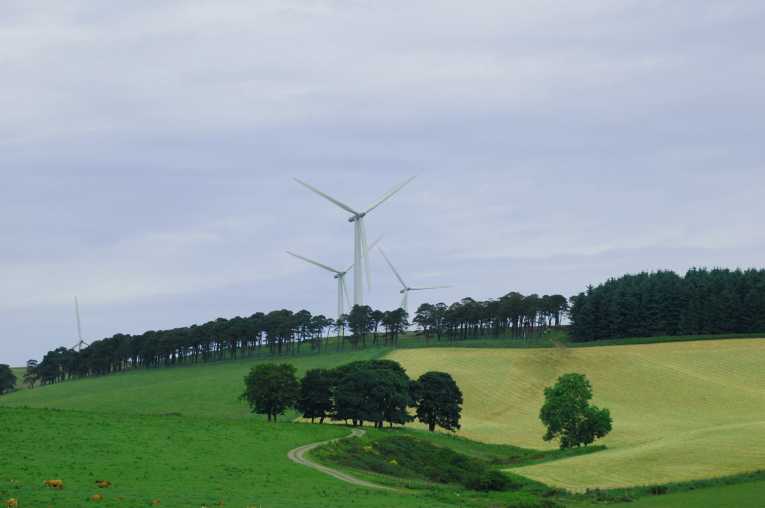Six wind farms in Scotland were paid £890,000 to stop producing energy because the National Grid was unable to use the power they were generating.
Research conducted by the Renewable Energy Foundation (REF) revealed that on the 5th and 6th of April, six wind farms - owned by Scottish power, RWE nPower, SSE Renewables and Falck Renewables - were paid substantial fees to subsidise any lost income when they were asked to switch off.
The cost - around 20 times the value of the electricity being generated - it is expected, will ultimately be passed down to the consumer.
The National Grid is responsible for making sure electricity supply runs at a steady rate. At times when the system is unable to absorb all of the electricity being generated, power stations are asked to reduce their output. The most economic solution is to approach fossil fuelled power stations as their output is more controllable and there is no need to pay for loss of earnings as generators using either coal-fired, gas fired or hydro generators receive contracted payments. They also use less fuel so make a saving on reducing output. Wind farms, in comparison, when asked to constrain their output forego subsidies they are in receipt of so have to be paid to cover the costs.
The subsidy represents a payment of around £50 - £55 per MWh. In comparison, the payments made to the six wind farms in early April represented payments worth in some cases up to 16 times that total. Farr, owned by RWE nPower was paid a rate of £800 per MWh, resulting in a total April payment of £265,000.
The National Grid in their Operational Forum for April, explained the need for constraint across the two days as a result of high winds, heavy rain and limited pump storage. A spokesman said a fault in the system meant surplus energy could not be transferred to England.
The Renewable Energy Foundation has argued the incident is proof of their belief that the scale and power of wind development in the UK has been to fast for the system to integrate it effectively. The result, they believe will be increased costs to the consumer, at a time when energy bills are already proving to be a significant drain on household incomes.
In his preface to Paul Frederick Bach's 2010 study for the REF, Professor Michael Laughton said, ''The outstanding major concern in the work reported here, and one with very serious implications - especially for the United Kingdom with its predominantly island system with inadequate international interconnection capacity - is the extent to which subsidized wind power can, in practice, be used within the system without needing to be constrained off: in other words wasted, or exported at whatever market prices, perhaps disadvantageous ones, prevail elsewhere.''
The current level of electricity provided by wind farms represent a low amount, around 5GW of capacity in the UK. The REF argues that while some may argue that expansion of the wind farm network would lead to more technological developments making their output more controllable there is in fact no commercial benefit to doing so, because of the subsidies wind farms receive.
A spokesman for the Department for Energy and Climate Change (DECC), described the incident as ''unusual'' and said more electrical storage was needed.
''In future we need greater electrical energy storage facilities and greater interconnection with our EU neighbours so that excess energy supplies can be sold or bought where required.''










